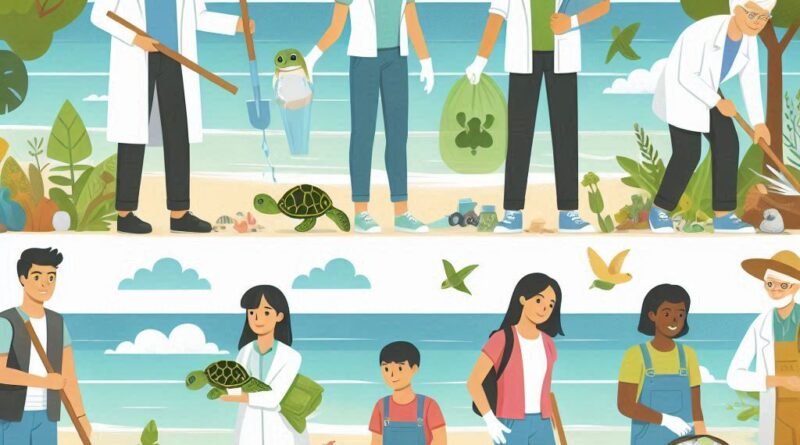Fight to Preserve our Fragile Ecosystems| Ias Banenge
Context:
The planet is facing unprecedented Ecosystems challenges. On May 29, 2024, media reports revealed that Delhi recorded an astonishing temperature of over 50 degrees Celsius, marking an 80-year record. Additionally, the Capital City is on the brink of a severe water crisis, exacerbated by political disputes and blame games.
Relevance:
GS3- Environment- Pollution and Conservation
READ MORE- ICMR Seeks Partners for Hydroxyurea Development for Children
Mains Question:
It is crucial to adopt sustainable practices to protect our environment and ensure a secure future for the coming generations. Discuss in the context of recent incidents in India and the world endangering environmental sanctity. (10 Marks, 150 Words).
World Environment Day 2024:
- The 2024 World Environment Day celebrations, held on June 5, emphasized the theme “Our land. Our future. We are #GenerationRestoration,” highlighting the urgent need for global action to protect the environment and rethink decisions harmful to nature.
- This year’s campaign focused on land restoration, desertification, and drought resilience. The Kingdom of Saudi Arabia hosted the global celebrations for World Environment Day 2024.
Recent Incidents:
Forest Fires:
- Forest fires are devastating the hills amid the political turmoil of the recently concluded Lok Sabha Elections, with a new government soon to take charge in this democratic landscape.
- Reports indicate a massive fire erupted in Kashmir’s Ramnagar forest division on Sunday, June 2, 2024, causing significant damage and financial losses worth crores in timber and other natural resources.
- Another major fire has been burning for three days in Daya Dhar of Ghordi Block, Udhampur District, despite ongoing firefighting efforts. This fire has severely affected the Daya Dhar forest, home to a significant peacock population, and has inflicted extensive damage on wildlife.
Felling of Trees in Khalanga Forest:
- According to a report dated May 9, 2024, published at Ground Report, activists are vehemently opposing the plan to cut down 2,000 trees in the Khalanga forest to construct a reservoir, citing ongoing climate challenges such as wildfires. Citizens argue that this plan needs serious reconsideration.
- Residents of Doon, led by Colonel Vikram Thapa (retd), president of Bal Bhadra Khalanga Vikas Samiti, propose using barren land instead of encroaching on lush green forests. Initially planned for the Kulhan Mansingh area, the project was relocated to Khalanga.
Delhi-Dehradun Expressway:
In a similar incident, the construction of the Delhi-Dehradun Expressway, aimed at improving connectivity, resulted in the felling of over 7,500 trees along a 16-km section, with approximately 4,983 trees cut in Uttarakhand and 2,592 in Uttar Pradesh. To mitigate this, the National Highways Authority of India (NHAI) plans to plant 176,000 trees.

Miscellaneous:
- Despite commitments to achieving Sustainable Development Goal 13 by 2030, climate change continues to escalate, causing widespread devastation.
- Global temperatures are rising, leading to catastrophic events such as Europe’s 2019 heatwave and Australia’s 2019-2020 bushfire season. Melting ice caps are threatening coastal regions and islands like the Maldives, Miami, and Venice.
- Extreme weather events, including record-breaking hurricanes and deadly typhoons, are causing significant damage and worsening water scarcity through prolonged droughts and altered precipitation patterns.
Way Forward:
- To address climate change, a comprehensive strategy is necessary: reducing greenhouse gas emissions, adapting to new conditions, and promoting sustainable development.
- Improving energy efficiency in buildings, transportation, and industries can also significantly reduce emissions.
- Sustainable agricultural practices, such as agroforestry and organic farming, not only lower emissions but also enhance food security.
- Urban farming and vertical agriculture present innovative solutions. Protecting and restoring natural ecosystems, which serve as carbon sinks, is essential.
- Initiatives like the Bonn Challenge and Costa Rica’s reforestation efforts highlight the benefits of increasing forest cover and biodiversity.
- Promoting a circular economy can reduce resource consumption and greenhouse gas emissions by minimizing waste and reusing materials.
- The European Union’s Circular Economy Action Plan aims to transition from a linear “take-make-dispose” model.
- Sustainable urban development focuses on creating resilient, low-carbon cities by emphasizing public transportation, green building practices, and smart city technologies.
- Education and awareness are crucial, with schools, universities, and community organizations playing key roles in promoting environmental stewardship.
Conclusion:
As we confront the urgent issue of climate change, adopting sustainable practices is essential to protect our environment and ensure a secure future for coming generations. Individual actions, combined with collective efforts, can lead to a sustainable world, ensuring that future generations inherit a healthy and thriving planet. The time to act is now.




